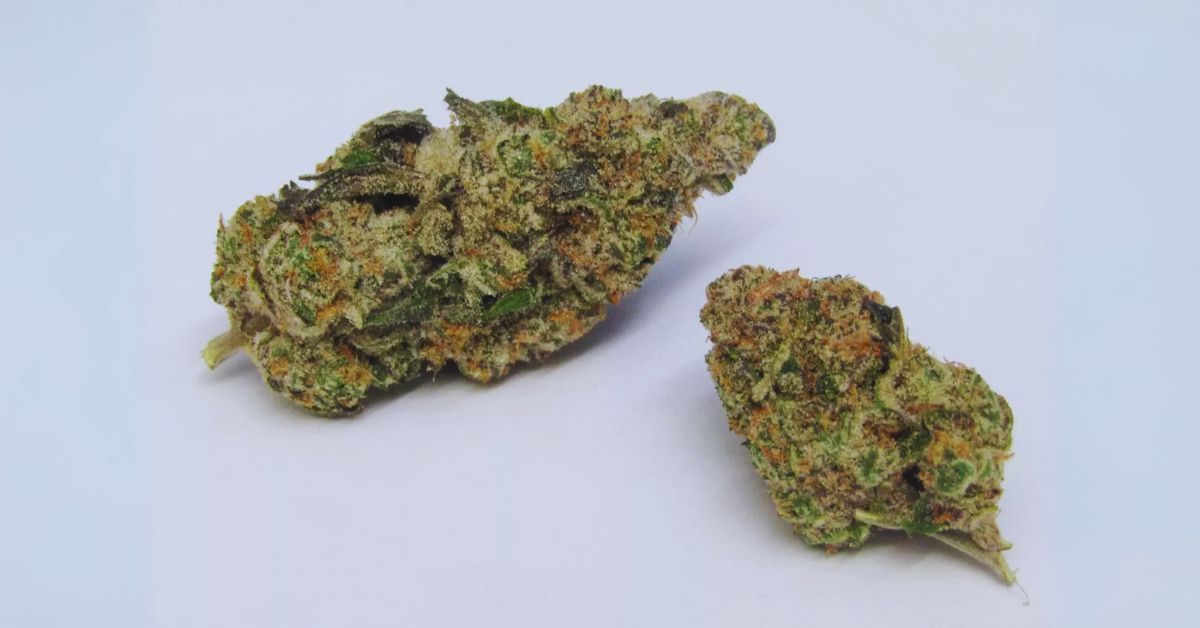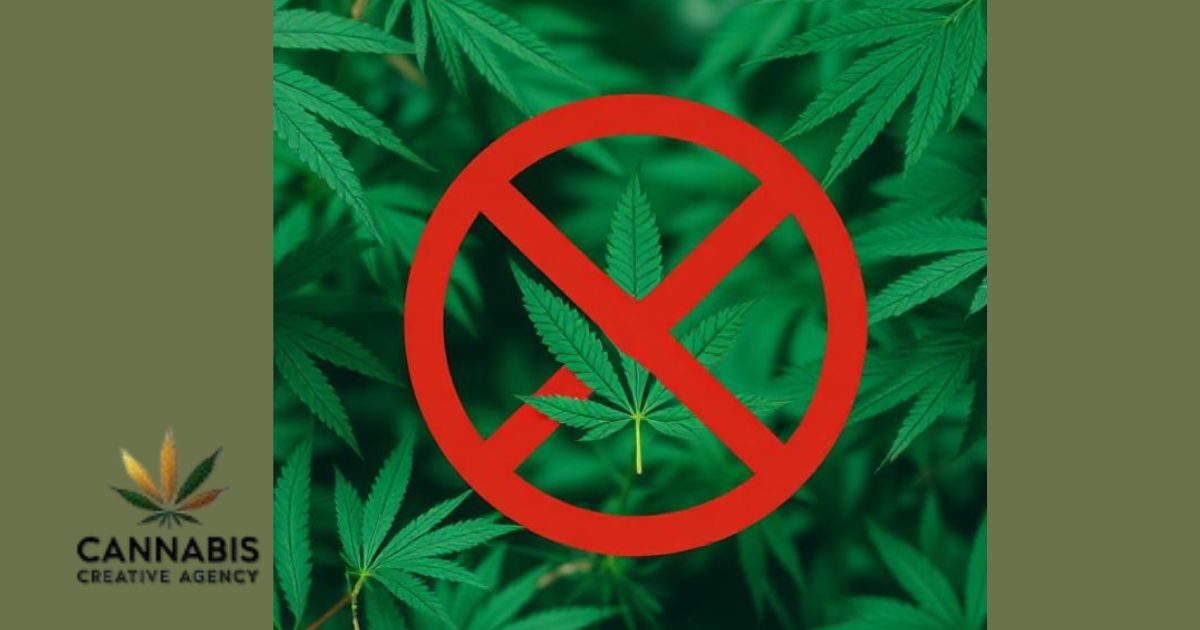The Cannabis Opportunities Reachable for Everyone has seen exponential growth in recent years, fueled by increasing legalization across various regions and a shift in public perception. What was once a controversial and stigmatized market has transformed into a thriving sector with vast business innovation, job creation, and product development opportunities. As cannabis becomes more widely accepted, both medical and recreational use continues to rise, creating a dynamic and competitive landscape.
Introduction to Arianna Cruz and Her Role at MORE Magazine
Arianna Cruz is a key figure in the cannabis industry. She is a prominent leader at MORE Magazine, a publication dedicated to the cannabis community. With her expertise in both journalism and cannabis, Cruz has become a trusted voice for exploring industry trends, policy issues, and the broader implications of cannabis in society. Her work at MORE Magazine provides in-depth coverage of cannabis culture, advocacy, and business developments, making her an essential player in shaping the conversation around this growing market.
Purpose of the Q&A: Exploring Barriers and Opportunities in Cannabis
This Q&A aims to delve into the unique barriers and opportunities within the cannabis industry, offering insights from Arianna Cruz’s experience at the helm of MORE Magazine. Through this conversation, we’ll explore the challenges cannabis businesses face, how regulatory hurdles impact growth, and the potential for innovation and expansion in a rapidly evolving market. Cruz’s perspective will shed light on the future of cannabis and what businesses, consumers, and advocates can expect as the industry matures.
The Importance of Breaking Barriers
Discussion on Societal Perceptions of Cannabis
Cannabis has long been surrounded by negative stereotypes and misconceptions, often linked to criminality or irresponsibility. However, as legalization expands and more people understand its medical benefits and economic potential, these societal perceptions are Cannabis Opportunities Reachable for Everyone slowly shifting. The ongoing cultural change surrounding cannabis is pivotal to its acceptance, especially as more consumers, including healthcare professionals and researchers, embrace the plant’s potential for wellness and medicinal use.
The Impact of Stigma on Cannabis Opportunities
The stigma surrounding cannabis remains one of the most significant barriers to growth within the industry. Despite increasing legalization, negative perceptions can hinder investment, limit job opportunities, and create challenges for businesses trying to establish credibility. Additionally, stigma can affect the willingness of individuals from diverse backgrounds to engage in the cannabis space. Overcoming these CBD Good for Gut Health prejudices is essential to unlocking full industry potential and allowing cannabis to reach a wider audience.
The Need for Inclusivity in the Cannabis Industry
Inclusivity in the cannabis industry is crucial for fostering innovation and ensuring that all communities benefit from the economic opportunities presented by legalization. Historically marginalized groups, including people of color and those disproportionately affected by past cannabis prohibition, must be given equal access to entrepreneurship, investment, and leadership roles. By creating a more inclusive Cannabis Opportunities Reachable for Everyone and diverse industry, cannabis can evolve into a profitable and socially responsible space, supporting equity and fair opportunities for all.
Arianna Cruz’s Journey in the Cannabis Space
Background and Experiences That Shaped Her Perspective
Arianna Cruz’s journey into the cannabis industry has been shaped by her passion for social equity and her background in journalism. With a keen interest in how policy and culture intersect, Cruz has leveraged her platform at MORE Magazine to educate and inform the public about the changing landscape of cannabis. Her experiences navigating both the media world and the emerging cannabis space have given her a unique perspective on advocating for the plant and the people it affects.
Key Challenges Faced in Her Career
Cruz has faced numerous challenges throughout her career, including combating industry stigma and breaking through traditional media barriers. As a woman of color in an industry still overcoming past prejudices, she has had to navigate both gender and racial disparities while striving to be a strong voice for inclusivity. The industry’s evolving legal landscape and the complexities of balancing journalistic integrity with business objectives have also presented significant hurdles.
Insights on Overcoming Obstacles in the Industry
Cruz emphasizes resilience, adaptability, and the importance of building a supportive network to overcome challenges in the cannabis space. She advocates for pushing back against the stigma, educating the public, and using one’s platform to create a more inclusive, fair, and open industry. By leaning into her passion for storytelling and equity, Cruz has been able to carve out a meaningful career, and she encourages others to stay focused on their mission, even in the face of adversity.
Advantages of Cannabis in Human Life
Overview of the Benefits of Cannabis
Cannabis has long been used for its therapeutic and medicinal properties, offering a wide range of benefits for various conditions. Known for its ability to alleviate pain, reduce anxiety, and improve sleep, cannabis has gained recognition for its positive impact on mental and physical health. Beyond its recreational use, the plant’s active compounds—THC and CBD—have been studied for their potential to support overall well-being, from reducing inflammation to aiding in neurological health.
Discussion on Its Role in Wellness and Health
Cannabis plays an increasingly important role in wellness and health, especially as an alternative to traditional pharmaceuticals. Many people turn to cannabis for natural relief from chronic pain, stress, and anxiety or as a sleep aid. The growing body of research suggests that cannabis, particularly CBD, may also have neuroprotective properties, making it beneficial for those with conditions such as epilepsy, multiple sclerosis, or even Alzheimer’s disease. Its versatility and wide range of uses in holistic health make it a popular choice for individuals seeking alternative healing methods.
Personal Anecdotes or Case Studies Highlighting Positive Impacts
Numerous personal stories and case studies highlight the life-changing effects of cannabis. For example, some cancer patients have reported significant relief from nausea and pain following chemotherapy when using cannabis products. Others with anxiety or PTSD have found that cannabis helps manage symptoms and improves their quality of life. These real-world experiences demonstrate the power of cannabis as both a medical treatment and a tool for enhancing everyday wellness. Such stories underscore the growing acceptance of cannabis as a legitimate and effective option for health and healing.

Medicinal Uses of Cannabis Sativa
Overview of Cannabis Sativa and Its Properties
Cannabis Sativa is one of the primary species of the cannabis plant, known for its tall, slender structure and higher concentrations of THC, the psychoactive compound responsible for its euphoric effects. Unlike its cousin, Cannabis Indica, which tends to have more sedative properties, Sativa strains are often associated with more uplifting, energizing effects. The medicinal potential of Cannabis Sativa comes from its complex chemical profile, containing a variety of cannabinoids (such as THC and CBD), terpenes, and flavonoids, which contribute to its therapeutic effects.
Common Medical Applications and Conditions Treated
Cannabis Sativa has been used to treat a variety of medical conditions. Its pain-relieving properties make it useful for individuals dealing with chronic pain, such as that caused by arthritis, multiple sclerosis, or fibromyalgia. It’s also commonly used for managing symptoms of anxiety, depression, and PTSD, with many patients reporting improved mood and reduced stress. Additionally, Cannabis Sativa has been shown to help with nausea and vomiting, particularly in cancer patients undergoing chemotherapy. Other uses include treatment for sleep disorders and appetite loss and as a supportive therapy for neurological conditions like epilepsy.
Research Supporting the Medicinal Benefits of Cannabis
Extensive research has been conducted on the medicinal benefits of cannabis, particularly its cannabinoids. Studies have demonstrated the effectiveness of CBD in reducing anxiety and inflammation, while THC has been shown to help with pain management and appetite stimulation. Clinical trials and real-world data continue to support the use of cannabis for a variety of conditions. However, more research is needed to fully understand its therapeutic potential and to establish comprehensive medical guidelines. As scientific understanding advances, the role of Cannabis Sativa in mainstream medicine becomes clearer, offering patients a natural alternative to traditional treatments.
Addressing Concerns: Why Cannabis Should Be Legalized
Examination of Arguments Against Legalization
Opponents of cannabis legalization often cite concerns related to public health and safety. Common arguments include fears of increased youth access, the potential for higher rates of addiction, and concerns about impaired driving. Critics also worry that legalization could lead to a normalization of drug use, which might influence societal values or encourage misuse. These concerns are frequently amplified by the long-standing stigma surrounding cannabis despite growing evidence supporting its medical benefits.
Counterarguments Highlighting the Benefits of Legalization
Legalizing cannabis brings a wide array of potential benefits, both social and economic. By regulating cannabis, governments can better control its quality and safety, ensuring that products are tested and free from harmful contaminants. Legalization also allows for more excellent research opportunities to explore the full medicinal potential of cannabis. Additionally, it generates substantial tax revenue that can be reinvested in public services, such as education and healthcare. Legal cannabis markets have also created thousands of job opportunities for entrepreneurs, fostering economic growth. Furthermore, legalization reduces the strain on the criminal justice system by addressing the disproportionate incarceration rates of people, particularly those from marginalized communities, who have been arrested for cannabis-related offenses.
The Role of Regulation in Ensuring Safe Use
Proper regulation is key to ensuring that cannabis is used safely and responsibly. Legal frameworks can enforce strict age restrictions, labeling, packaging, and marketing guidelines to prevent underage use and ensure consumers are well-informed. Regulations can also set standards for testing, quality control, and potency, ensuring that cannabis products are safe and consistent. Furthermore, governments can allocate funds to public health campaigns to educate consumers on safe consumption and the potential risks of cannabis use. In this way, legalization paired with effective regulation can provide a balanced, responsible approach to cannabis use, minimizing potential harm while maximizing the benefits.

Understanding the Side Effects of Cannabis Sativa
Common Side Effects Associated with Cannabis Use
While Cannabis Sativa can offer numerous therapeutic benefits, it can also cause side effects, mainly when used in excess or by individuals with particular sensitivities. Common side effects include dry mouth, red eyes, dizziness, and increased heart rate. Some users may experience heightened anxiety, paranoia, or impaired memory and concentration, especially when consuming high doses of THC. While these side effects are typically temporary, users must be aware of their potential effects on their body and mind.
Discussion on Responsible Consumption
Responsible cannabis consumption involves understanding dosage, knowing one’s tolerance levels, and using cannabis in a safe environment. Starting with low doses, particularly for new users or those trying new products, can help minimize adverse effects. It’s also important to avoid combining cannabis with other substances, such as alcohol, which can amplify the risk of adverse side effects. Responsible consumption also includes avoiding activities that require focus and coordination, such as driving while under the influence of cannabis.
Importance of Education in Mitigating Risks
Education plays a critical role in mitigating the risks associated with cannabis use. Clear, accessible information about potential side effects, proper dosing, and safe consumption practices can help consumers make informed decisions. This education should extend to healthcare providers, who need to be well-versed in cannabis use to guide patients appropriately, especially as cannabis becomes more widely used for medicinal purposes. By fostering a well-educated consumer base, the cannabis industry can promote safer use and help individuals fully benefit from its favorable properties while minimizing potential risks.
The Future of Cannabis Opportunities
Emerging Trends in the Cannabis Industry
As the cannabis industry evolves, new trends present exciting opportunities for businesses and consumers alike. These include the rise of cannabis-infused products in wellness, food, and beverages, as well as advancements in cannabis technology, such as improved cultivation methods and new extraction processes. The growing demand for CBD-based wellness products and an increasing focus on sustainable and eco-friendly practices are also reshaping the industry. Additionally, the expanding acceptance of cannabis use in the mainstream—both medically and recreationally—is opening up new markets and creating demand for innovative product offerings.
Potential for Economic Growth and Job Creation
The cannabis industry is positioned to be a major driver of economic growth, with projections showing substantial market size and revenue increases in the coming years. As more states and countries legalize cannabis, job creation in sectors like cultivation, retail, research, and compliance will continue to rise. The legal cannabis market has already created thousands of new jobs, ranging from budtenders to business consultants and compliance officers. Furthermore, the cannabis supply chain, including packaging, marketing, and distribution, offers ample opportunities for entrepreneurship and employment.
The Role of Advocacy in Shaping Future Policies
Advocacy will continue to play a key role in shaping the future of cannabis policy. As more organizations, activists, and community leaders push for legalization, expungement of past cannabis-related offenses, and equitable industry practices, there is growing momentum for reform. Advocacy efforts are critical in addressing social justice issues, such as ensuring fair access for historically marginalized communities and creating policies that prioritize public health and safety. By promoting education, raising awareness, and working closely with lawmakers, advocates can help ensure that the cannabis industry grows in a way that is both economically prosperous and socially responsible.
Conclusion
Recap of the Importance of Breaking Barriers in Cannabis
Breaking barriers in the cannabis industry is essential for creating a more inclusive and equitable market. Overcoming societal stigma, addressing regulatory challenges, and providing opportunities for marginalized communities are key to unlocking the full potential of the cannabis sector. As more people embrace the benefits of cannabis, it’s crucial to ensure that everyone has access to its opportunities, whether in entrepreneurship, employment, or wellness.
Final Thoughts on the Future of Cannabis Opportunities
The future of cannabis presents exciting possibilities for economic growth, innovation, and positive societal impact. With emerging trends, evolving policies, and a growing demand for cannabis products, the industry is poised for further expansion. As more opportunities arise, it’s essential to continue pushing for fair access and responsible use, ensuring that cannabis becomes a transformative force in both the economy and public health.
Call to Action for Readers to Engage with the Cannabis Community
As cannabis continues to grow and evolve, readers need to engage with and support the cannabis community. Whether you’re a consumer, advocate, or potential entrepreneur, your involvement helps drive the industry toward greater inclusion and success. Stay informed, share your knowledge, and contribute to the conversation by advocating for policy changes and embracing cannabis culture. Together, we can help shape a future where cannabis is recognized for its benefits and its industry is open to all.










